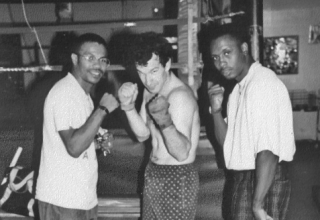
Berkeley’s Sociology Department is known around the world for its excellence in research and teaching. Our faculty advance cutting edge research and teach in most sociological specialities. Our PhDs are leaders in universities and research centers across the US and in many other countries. And our BAs populate the ranks of innumerable professions, bringing with them the skills and special perspective of Berkeley sociology.
We are proud to make these contributions from the world’s leading public university. At Berkeley, we combine intellectual rigor with a commitment to public service through our research, teaching, and service on campus and beyond.
For the past six decades, Berkeley’s Sociology Department has consistently been ranked among the world’s top sociology departments. Our graduate program is ranked #1 in the latest U.S. News and World Report, and our undergrad degree is currently the best in the US according to College Factual and features on Grad Reports’ Best College List 2020.

Prof. Einstein served graduate students as a model of prudence in remaining unfashionably true to the grand…
Rebuilding Labor: Organizing and Organizers in the New Union Movement
"In order to recruit new members on a scale that would be required to significantly rebuild union power, unions must fundamentally alter their internal organizational practices. This means creating more organizer positions on the staff; developing programs to teach current members how to handle the tasks involved in resolving shop-floor grievances; and building programs that train members to participate fully in the work of external organizing. Such a reorientation entails redefining the very meaning of union membership from a relatively passive sta...
Departmental Colloquium Series
Caylin Moore, "Collateral Decision-Making: The Case of Pretrial Detention and The Criminal Courts "
Monday October 27th, 2025 at 2:00 pm - 3:30 pm
Blumer Room - 402 Social Sciences Building and via zoom
Abstract:
While research shows that penal state interventions facilitate a wide range of detrimental consequences, theoretical accounts rarely specify the role of micro-level agency. To address this gap, I advance the concept of Collateral Decision-Making: the process by which individuals, embedded in a criminal-legal institution, make decisions that carry adverse consequences in another institutional domain. To mitigate negative experiences generated by a criminal-legal institution, individuals reframe how they navigate another institution. To illustrate this process, this article analyzes in-depth interviews with 65 pretrial detainees simultaneously embedded in two distinct state institutions— jails and criminal courts. The findings expose why and how the disadvantage of pretrial detention recalibrates decision-making and translates into unfavorable outcomes, as detainees adopt plea agreements to escape violence, the misery of court holding tanks, poor jail conditions, and caretaker obligation frustration—even while maintaining innocence. Notably, the analysis also reveals that detainees sometimes forgo the benefit of legal counsel, offering a compelling account of how this decision appears reasonable within the structural constraints of jail detention, yet ultimately reproduces institutional disadvantage. The findings illustrate the propensity of the penal state to shape individual behavior across institutions and underscore the salience of multiple institutional embeddedness for understanding social disparities.



